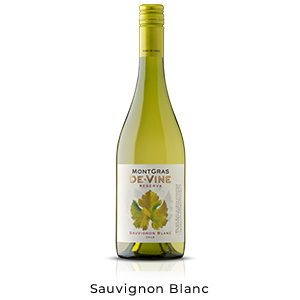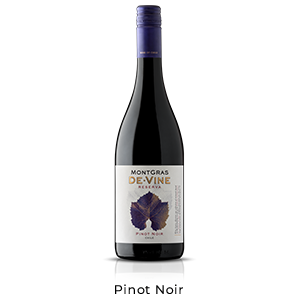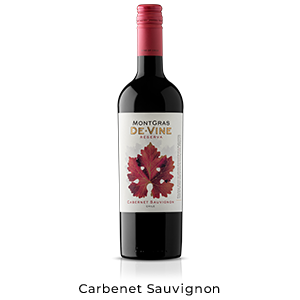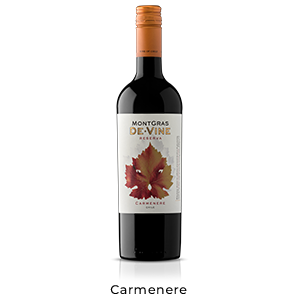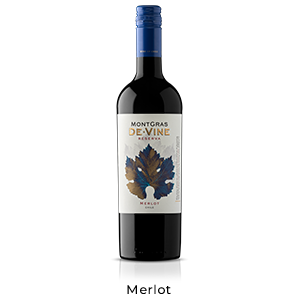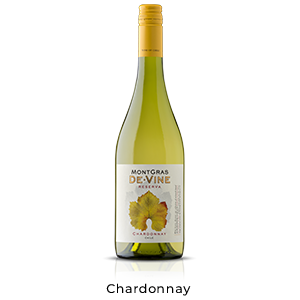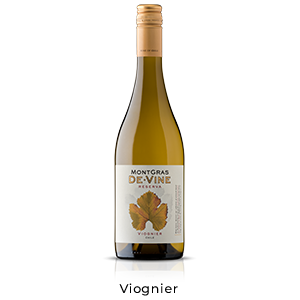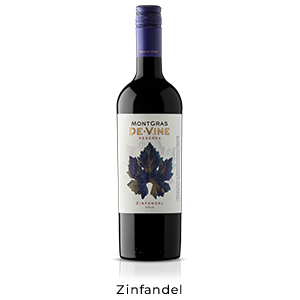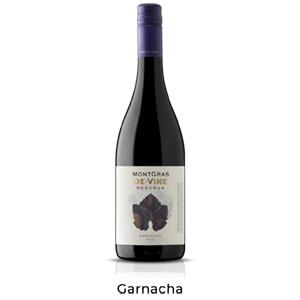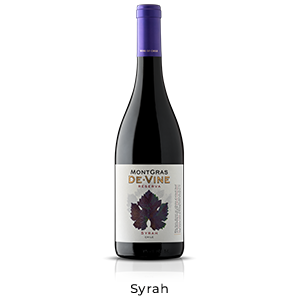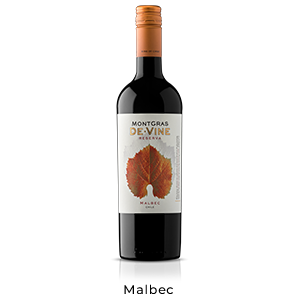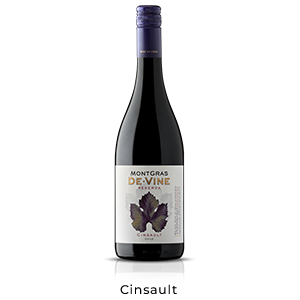MONTGRAS
DE VINE
Inspired by the fascinating world of ampelography, which allows to identify the different grape varieties according to the shape and color of their leaves. A wonderful interpretation of the great diversity of vines that exists in Chile, with its varied geography from north to south and from east to west.

Did you know that the leaf shape of each vine allows us to identify the grape variety?
Looking at the shape of the leaves and clusters has made it possible to identify more than 11,000 species of vitis vinifera in the world! This science is known as ampelography and comes from the Greek words ámpelos “vine” + graphos “writing”.

MONTGRAS DE VINE
SAUVIGNON BLANC
It is one of the favorite white varieties worldwide, showing great potential in cold climates such as Casablanca and San Antonio with great success in the northern part of Chile in Limarí where it acquires more mineral notes.

Accolades

MONTGRAS DE VINE
PINOT NOIR
This is a highly demanding variety in a good terroir as well as a cold climate such as Casablanca, San Antonio and Bío Bío in Chile, currently an incredible quality is obtained, highly competitive worldwide.

Accolades

MONTGRAS DE VINE
CABERNET SAUVIGNON
Internationally recognized, this variety in Chile has found its second home, being widely cultivated in the Aconcagua, Maipo, Cachapoal and Colchagua valleys. The high insolation, as well as the cool breeze, which comes down from the Andes mountain, have made it possible to achieve a consistent and very high quality variety.

Accolades

MONTGRAS DE VINE
CARMENERE
This variety has become one of the most emblematic reds in Chile, reappearing among the Merlot one hundred years after it was considered extinct from a plague that affected the European vineyards where it came from. Chile became their refuge worldwide, being Colchagua Valley the one with the largest area planted with it.

Accolades

MONTGRAS DE VINE
MERLOT
It is one of the most produced varieties worldwide, being also widely cultivated in different valleys of Chile. Confused with Carmenere, given the ampelographic similarity that these two possess, today it is clearly identified to show by itself all its potential.

Accolades

MONTGRAS DE VINE
CHARDONNAY
It is one of the favorite white varieties worldwide, showing great potential in areas with cold climates such as Casablanca, San Antonio and with great success in the northern part of Chile like Limarí, where it acquires more mineral notes.

Accolades

MONTGRAS DE VINE
VIOGNIER
This variety is one of the least explored in Chile, giving good results on granite soils and warmer climates unlike the well-known Sauvignon blanc and Chardonnay.

Accolades

MONTGRAS DE VINE
ZINFANDEL
This variety, of Italian origin, is very popular in USA, not so much in Chile, it adapts well to different climates, originating different wine styles depending on the terroir where it is grown, achieving excellent results with older vineyards.

Accolades
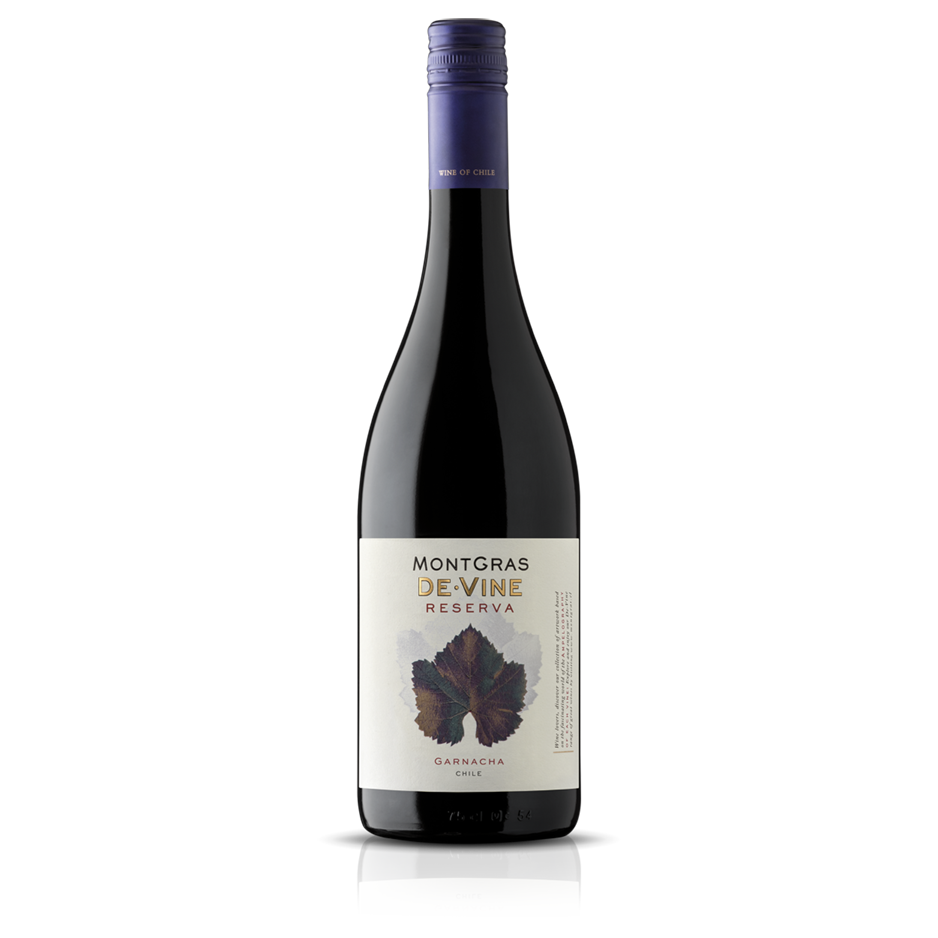
MONTGRAS DE VINE
GARNACHA
Intense purplish red colour. Red fruit notes, mainly fresh cherry. Then spicy aromas appear, such as white pepper. Pleasant texture with pleasant and smooth tannins. Balanced and round acidity. Medium bodied and juicy finish.

Accolades

MONTGRAS DE VINE
SYRAH
This versatile variety is totally transformed depending on the climatic conditions, showing more vigorous wines in warmer climates such as the Colchagua Valley, as well as leaner in cooler valleys such as San Antonio or Elqui in northern Chile.

Accolades

MONTGRAS DE VINE
MALBEC
This versatile variety adapts to different climates, being cultivated in Chile in colder regions than its place of origin in Cahors, in the south-west of France, achieving interesting results of fresher and more elegant wines.

Accolades

MONTGRAS DE VINE
CINSAULT
It is a variety that behaves very well in poor and dry lands, since it is very fertile and productive, so in Chile it has found its place in the south-central area of the country, obtaining interesting results in the Itata Valley.





